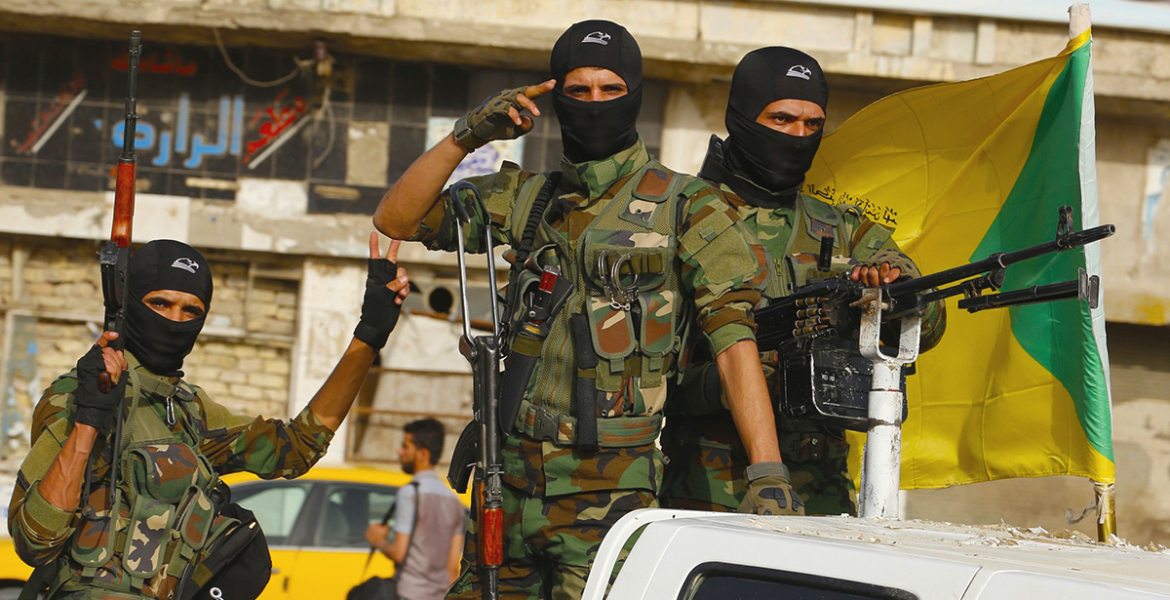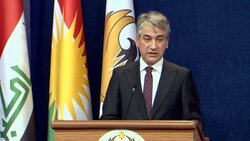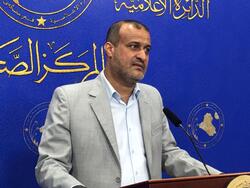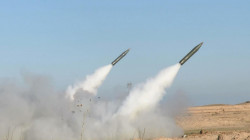Report: Iraqi factional divides remain despite ceasefire enduring "Assad and Hasakah" strikes

Shafaq News/ An unannounced truce that led Iran-backed Iraqi militias to halt attacks on US forces in the region remains intact despite two recent incidents, sources close to Baghdad and armed factions told The National on Tuesday.
They said the attacks on two US bases in Syria and Iraq were not approved by the umbrella organization of the armed groups, indicating possible differences within the bloc concerning military strategies.
The rockets fired at US targets were the first since early February when the truce that involves Washington, Baghdad, and Tehran was reached. The US State Department confirmed one of the two attacks.
However, an Iraqi security source close to the government told The National on Tuesday that the truce "is still holding" despite the attacks and that the unannounced cessation of hostilities "will continue for three months- until the first week of May."
Kataib Hezbollah, one of Iraq's most powerful armed groups, denied responsibility for the first attack only hours after a statement published on Telegram claimed it was resuming its attacks on US targets.
"There was no central decision from the militias' leadership to carry out the attack on the US base," the Iraqi source added. "It was most likely the work of individuals within the militias who decided to attack."
The armed factions are split on their position on the truce, explained the source, describing the situation within the militias as "chaotic."
Militant groups in Iraq and Syria have attacked US troops as part of a co-ordinated front since the outbreak of Israel's war in Gaza – where health authorities say more than 33,000 people have been killed by Israeli fire – demanding an immediate ceasefire in the Palestinian territory run by their ally Hamas.
The cessation of attacks against US forces followed a January attack that killed three US soldiers at the Jordanian-Syrian border. Washington attributed it to the Islamic Resistance in Iraq, the Iran-backed group of militias that includes Kataib Hezbollah.
Since then, indirect talks between the US and Iran have attempted to build on the unannounced truce in Iraq to expand it across conflict-hit areas of the Middle East, sources have said.
US troops withdrawal
A Shiite legislator close to the armed factions confirmed on Tuesday that there were divisions between these groups over resuming attacks against the US troops in Iraq and Syria.
"Some of the factions, including Kataib Hezbollah, are pushing for canceling the truce because of what they consider as procrastination from the Americans and the weak [Iraqi] government position in discussions over US troops withdrawal," he told The National.
He added that the topic of the US forces' withdrawal had not been on the agenda of Prime Minister Mohammed Shia Al Sudan's visit to Washington this month, further irritating these groups, but emphasized that "the truce is still in place, and there are no indications at this point of its collapse."
The Iraqi Prime Minister visited Washington last week on a trip he said would open "a new chapter" in bilateral ties as Baghdad pushes the US to withdraw its troops.
US strikes against the militias on Iraqi territory since the outbreak of the war in Gaza on October 7 have piled pressure on the government in Baghdad to respond to long-standing calls for American-led forces to leave the country. About 2,500 US troops are stationed in Iraq as part of an international coalition against ISIS.
On January 27, Iraq and the US held the first round of talks to end the coalition's mission. Baghdad expects discussions to lead to a timetable for reducing the coalition's presence and reaching bilateral security agreements with partners.
A source close to the Iran-backed groups said that the recent attacks against the US forces were a "warning" by some armed factions who "aren't satisfied with what the PM brought back from Washington".
"There is no specific date or timetable related to the exit of the coalition forces led by the Americans, which is one of the basic demands of the factions," added the source.
The attacks on US forces came at a time of high tension between Iran and Israel.
Israel carried out a military strike against Iranian territory on Friday, less than a week after Tehran's rocket and drone barrage retaliation for an Israeli attack on its Damascus embassy.
These are the latest escalations stoking fears of a regional war.
The US received notice of the Israeli strike but did not endorse the operation or play any part in it, NBC and CNN reported, quoting a number of sources and a US official.
Only the headline is edited by Shafaq News Agency.
Disclaimer: The views presented by the author do not necessarily reflect the official standpoint of Shafaq News Agency.





